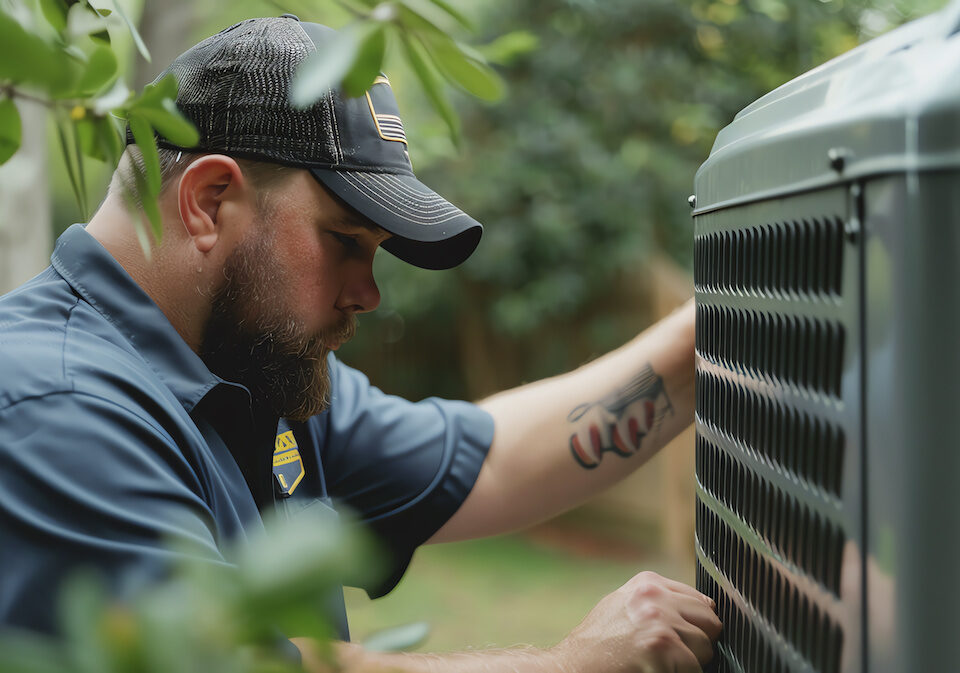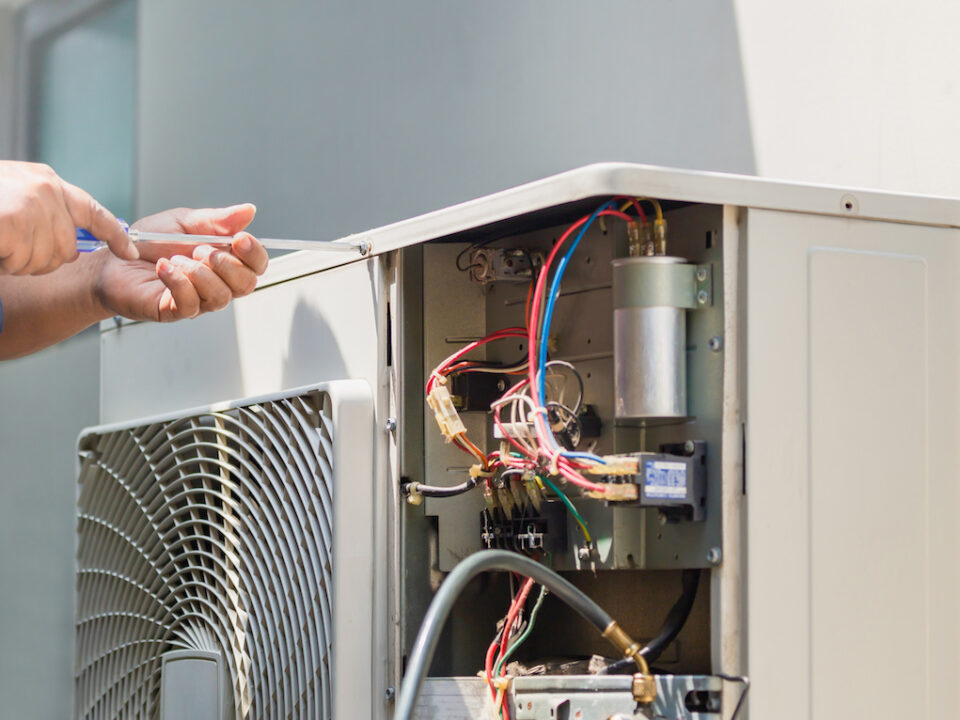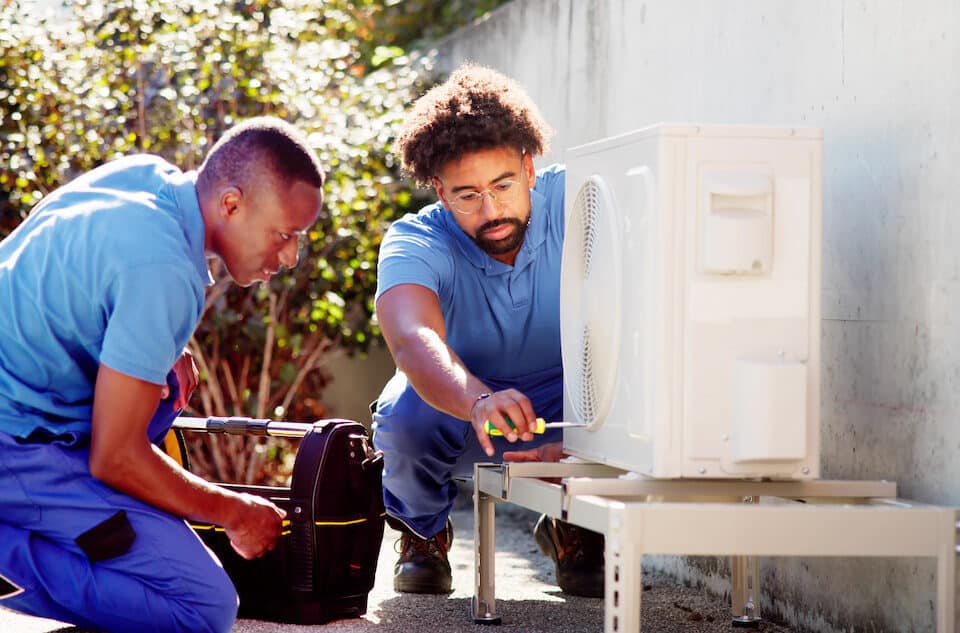10 HVAC Myths and How They Affect Your Home
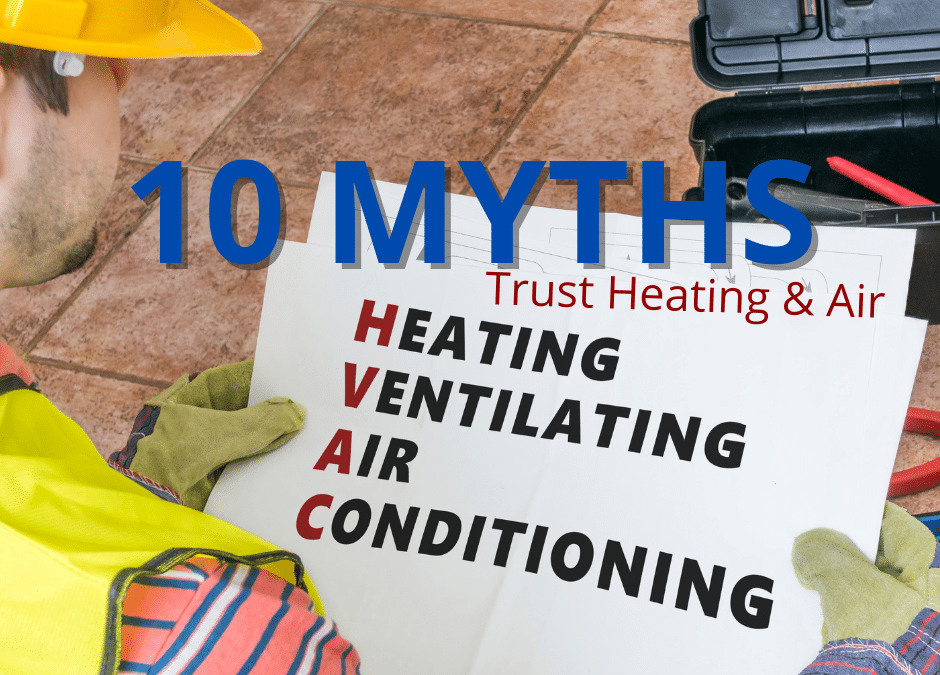
In today’s society, the internet provides a wealth of information, from repairing your transmission to traveling abroad and more. When the how-to and DIY phenomenon took off on platforms like YouTube (2005) and Pinterest (2009), they made DIY more widely accessible than in years past. Gone are the days of keeping endless users’ manuals stored in the home. Now we can simply look them up online or watch a video on repairing just about any make and model of anything. But with so many people posting “expert videos,” the sources can often be unreliable, and the information can be skewed. However, there have been several HVAC myths discovered through the trial-and-error process of these creators.
What Constitutes an HVAC Myth?
Some call it an old wives’ tale or a myth. There are even TV shows on debunking myths. Here is what we found about the definitions of these two.
According to Merriam-Webster, an “old wives’ tale is defined as,
“An often-traditional belief that is not based on fact: Superstition.”
Likewise, a “myth” is defined as the following,
“A usually traditional story of ostensibly historical events that serves to unfold part of the world view of a people or explain a practice, belief, or natural phenomenon.”
Basically, it is often founded on an experiment or actual event from the past that has gotten skewed over the years of passing the sentiment down from generation to generation.
For example, you may have heard the common myth that bulls become angry when they see the color red. But that is not at all true. In fact, bulls are red-green colorblind. It is simply the movement of the cape that taunts them.
Well, it may surprise you to learn the HVAC myths as well.
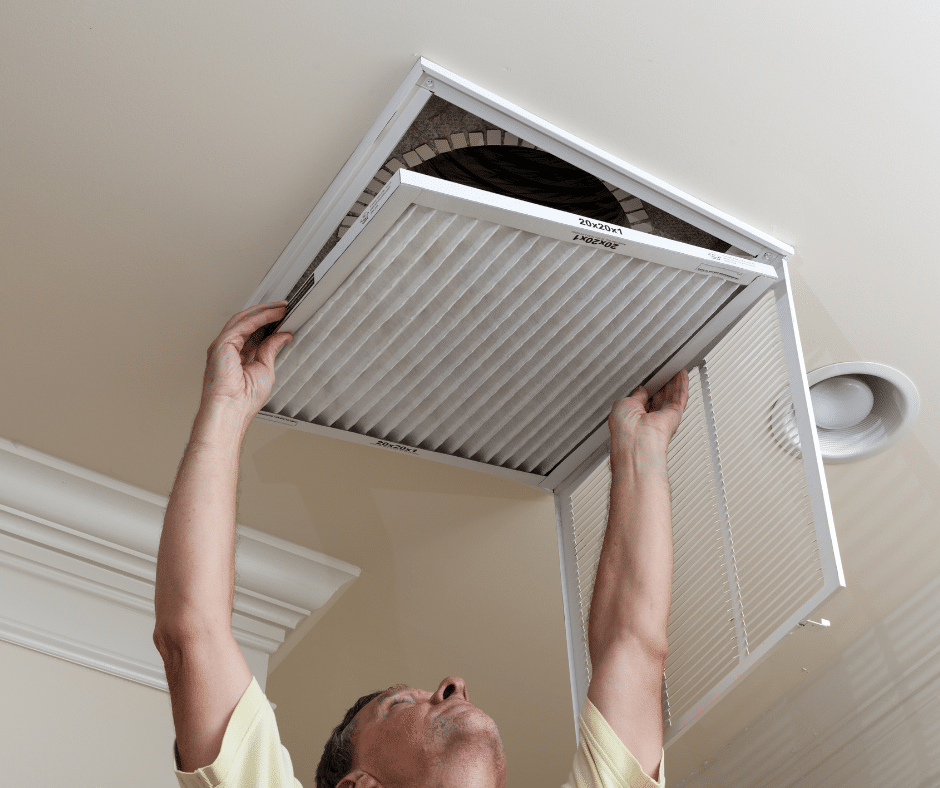
The 10 HVAC Myths
There is so much information on HVAC maintenance that one can get overwhelmed looking online for how-to videos. If you are not handy with a screwdriver, it can be downright frustrating. But never fear; TRUST Heating and Air is here to let homeowners know what tips are trustworthy and which are myths.
- You only need to change the air filter one time per year. So many homeowners believe changing the filter more is just a waste of money. But honestly, it saves you in the end. The filters come with a recommended time to change the filter printed on the outside of the packaging. The average time is one to three months.
- The bigger the unit, the better. That is absolutely not true. There are recommendations for sizes for a reason. When your unit is too large for the home, it will continuously cycle in and off. That causes the motor to run less, allowing humidity to build up. It is essential when replacing an AC unit to have your local HVAC specialists help you determine the unit size.
- The thermostat location does not matter. Now, this is a myth we hear over and over. But it is not valid. Also, if you remodel your home’s interior, you may need to have the thermostat location re-evaluated. The thermostat should be located somewhere central and away from heat sources like windows, heaters, and the kitchen.
- Energy-Efficient HVAC systems will reduce your AC bill immediately. While it is best practice to have energy-efficient machinery in the home, many other factors go into the AC efficiency.
- Turning your AC off when you leave home wastes energy. Of course, it will save energy if it is not running. Anytime a device is not on, it uses no power. You may just need to be patient as it cools in the summer when you are home. This is where a programmable thermostat comes in very handy.
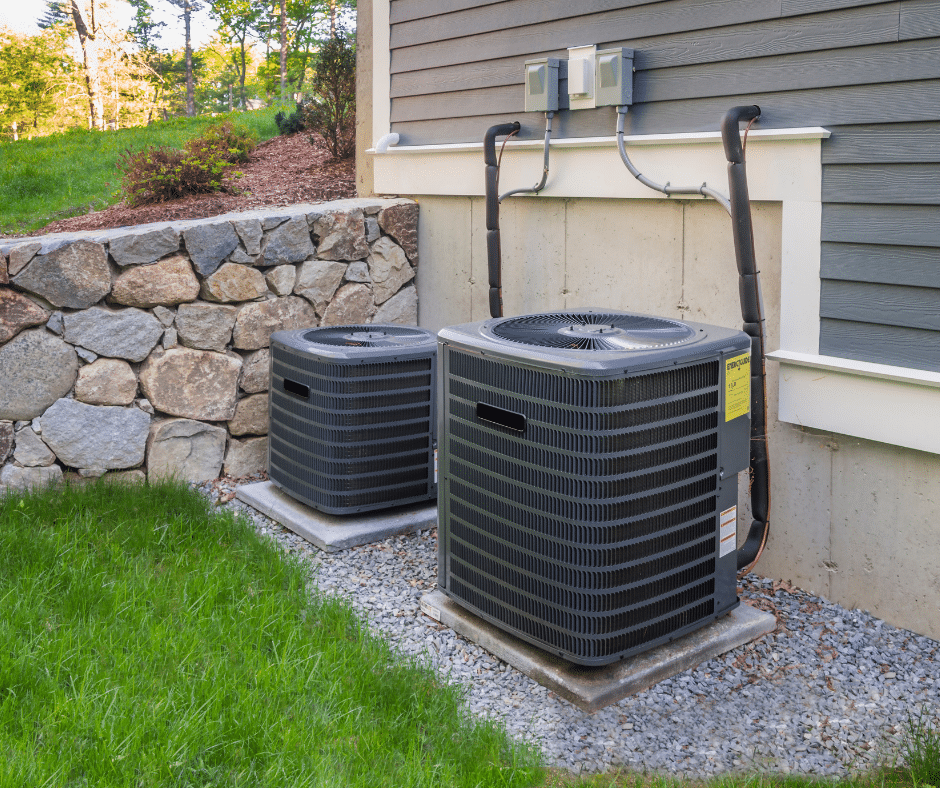
- It is easy to locate air leaks in your home without professional tools and help. Well, the fact is, even the large leaks are challenging to spot. But when you hire an HVAC tech to look for leaks in your system, they will crawl into spaces you never thought about checking. What’s more, they have a keen eye for spotting draftiness and the tiniest of leaks in the perimeter of your home. After all, it is what they do each day.
- Close vents in unused rooms to save energy and air. Closed vents can cause air pressure and eventual leaks in the ducts. When the ducts leak, pressure is then released into the area containing the leak, which could be the attic or the walls. Those do not need to be cooled.
- If you cover the outside unit, it will keep the system from winter damage. Well, if you have a heat pump on that unit, the fan will run year long. Covering it will burn out the motor. It is better to place a structure over the compressor that will allow it to breathe, like a fine mesh or a spaced roof.
- Routine HVAC maintenance is a waste of time and money. Again, this is another untruth. Like the backyard pool or your family car, no one should wait until the tools they use every day are broken to get them serviced. Your HVAC unit works for you and your family all day, every day. It is bound to need some specialized care now and again. Not to mention, the seasonal changes can be taxing on the motor and compressor.
- Turn up the thermostat to heat or cool the home. Nope. If you want your home to be a specific temperature and it is not reaching that goal, even turning it up more and more will not achieve the desired temp. There is something wrong with the unit or the home if your comfort level is not attainable. It is best to have it checked out before it burns out.
For more tips on how to keep your home cool in the summer months, Click Here. If you still have issues, please call our offices or contact TRUST Heating and Air here.
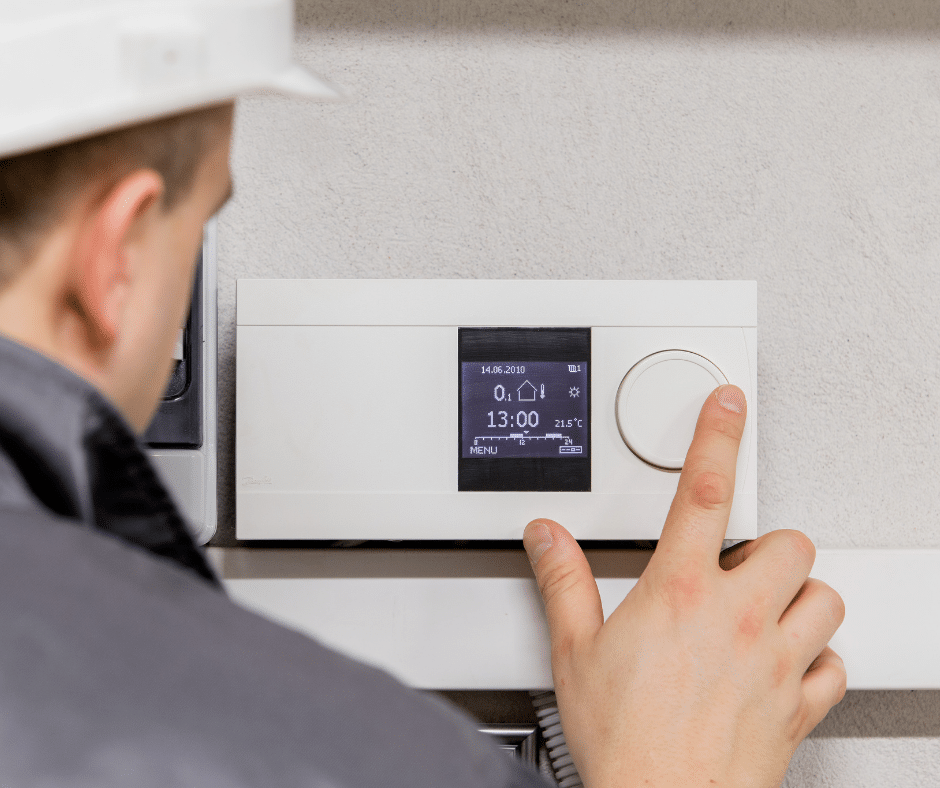
How HVAC Myths Affect Your Home
Have you been listening to any of the following helpful suggestions that you now know are myths? Does that seem to correspond with an HVAC unit that is always struggling or constantly needing repair? Well, now, you know why. Here is how a lack of proper care affects your HVAC system negatively.
First, when the filters are not clean, they get clogged up with dirt, dust, hair, and more. Clogged filters do not pull in enough air to be circulated, and they place a strain on the motor.
A unit that is too large for the home will cycle on and off, causing it to run less. And you may think that it is okay if the temperature is comfortable. However, it is not alright, for one reason. You see, when air is not circulating through the HVAC regularly, the machine will not be able to keep up with the humidity in the air. Humid air in the home causes mold, mildew, and wood rot. No one wants that.
Energy-efficient devices take care and homeowner participation. If you have an efficient AC, you will want to make sure the rest of the home is efficient as well. Door jams should have the appropriate weather stripping to avoid leaks. Windows need to seal properly when closed. Also, cracks in the wall, as small as they seem, need to repair to prevent air leaks.
TRUST Heating and Air Helps Clients Learn About HVAC
As always, the expert technicians at TRUST Heating and Air are here to help educate customers and evaluate their HVAC units to keep them running smoothly. We know it can get sweltering in Georgia in the summer months, and you sure do not want to suffer the heat without your AC system. That is why we like to visit your HVAC unit in the Spring before temperatures take a significant shift.
Then we like to schedule a maintenance visit in the Fall as the heater needs to begin its job of keeping the home comfortable for the winter months. So, remember, prevention is critical when it comes to any machinery.
Now, what are you waiting for? Contact the friendly HVAC professionals at TRUST Heating and Air to get your system back to tip-top working condition in no time.

